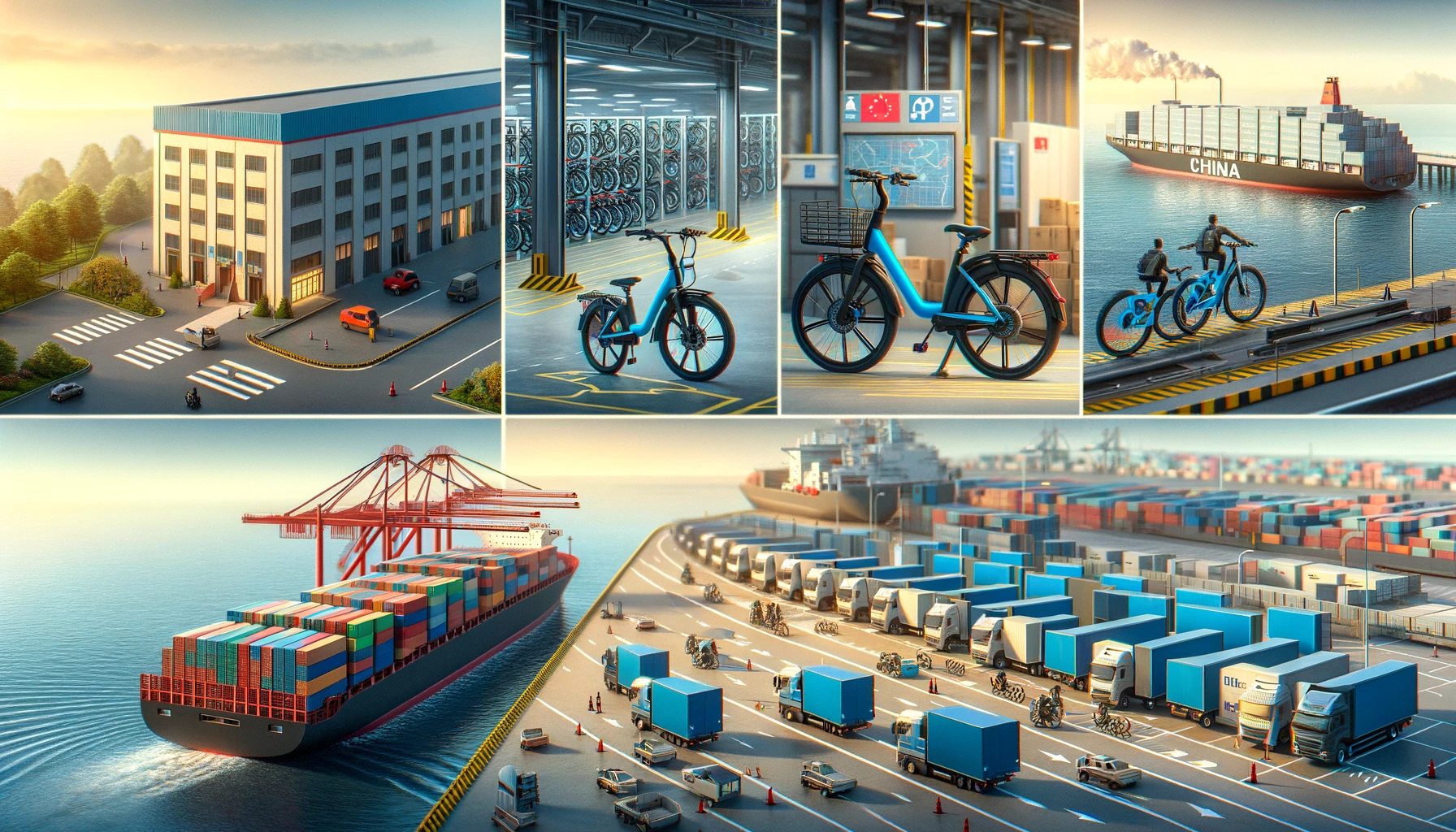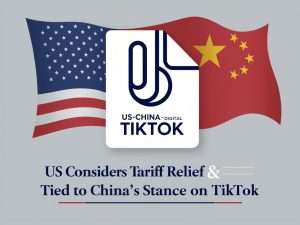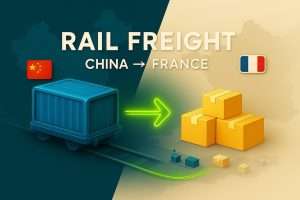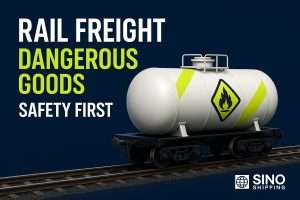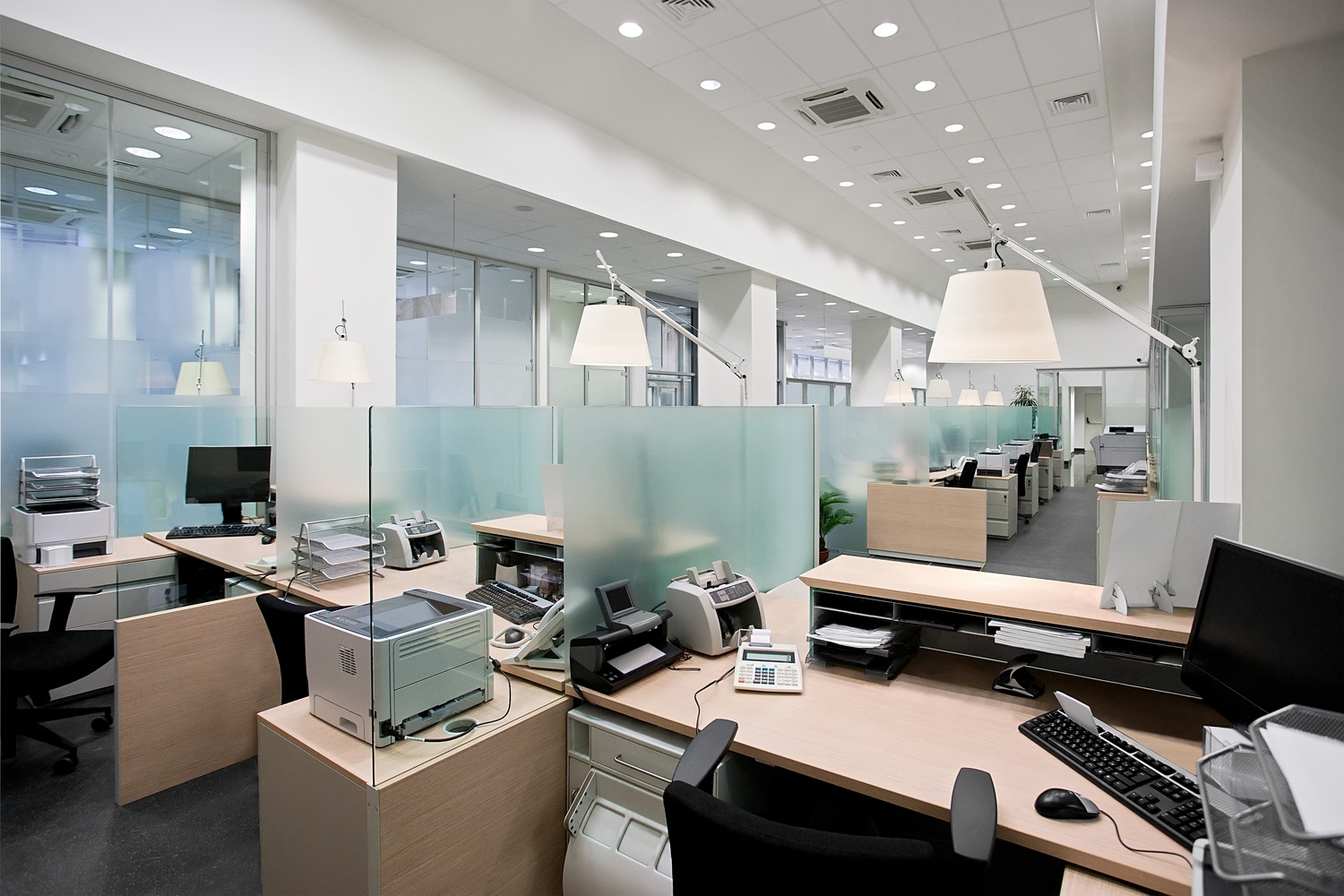The eBike Revolution and China’s Role in It
The Rising Popularity of eBikes Globally
Have you ever wondered why eBikes are taking the world by storm? It’s not just about being trendy; it’s a global movement. The eBike market, valued at around USD 33.7 billion in 2022, is projected to grow at a robust rate, reaching an estimated USD 60.8 billion by 2032. This surge is driven by a blend of factors, from governmental support for e-mobility to a shift in commuter preferences towards personal mobility solutions. The pandemic also played a pivotal role, as lockdowns and restrictions prompted many to seek safer, socially distanced transport alternatives like eBikes, especially in urban areas where cycling infrastructure has been improving.
Why China is a Key Player in the eBike Industry
But why is China often at the center of this eBike revolution? Asia Pacific, particularly China, is a dominant player in the global eBike market. Factors like extensive bicycle infrastructure, high vehicular and public transit congestion, and stringent emission norms contribute to China’s leading position. With such a significant market share, China’s role as a major manufacturer and exporter of eBikes highlights its vast manufacturing capabilities and commitment to innovation.
The Opportunity for Importers
For businesses looking to tap into this booming market, the opportunity is immense. Importing eBikes from China can open doors to a wide range of products and customization options, all while leveraging China’s efficient production systems. With the global market’s expected growth, aligning with the right Chinese suppliers could be a strategic move for importers aiming to meet the rising demand for eBikes.
eBike Market Insights and Supplier Selection in China

Market Trends and Growth Analysis
The Chinese eBike market is experiencing significant growth and transformation. With a market size estimated at USD 10.68 billion in 2024, it’s expected to reach USD 12.39 billion by 2029, growing at a CAGR of 3.01% during this period. This growth is driven by a rising preference for pollution-free vehicles, an increase in bicycle usage for commuting to nearby areas, and various government initiatives supporting green technology.
China leads in the Asia-Pacific eBike market, largely due to high sales aimed at tackling heavy traffic conditions and growing vehicle pollution. The affordability of eBikes, priced between CNY 1,500-3,000 (approximately USD 180-360), makes them accessible to a wide range of consumers, further boosting their popularity. Additionally, the COVID-19 pandemic significantly boosted the demand for eBikes in China, with the concept of mobility-as-a-service gaining traction and bike-sharing platforms like Meituan’s Mobike expanding their fleets.
Identifying Reliable eBike Suppliers
Given the substantial market size and growth, identifying reliable eBike suppliers in China is crucial. Key market players include AIMA Technology Group Co. Ltd, Luyuan Electric Vehicle Co., Ltd., Sunra Ev, TAILING ELECTRIC VEHICLE CO.,LTD, and Yadea Group Holdings Ltd. These companies have gained prominence due to their high-quality products, diverse range, and advanced technology.
When selecting suppliers, it’s important to consider their market presence, product range, and technological advancements. Suppliers like Yadea are expanding globally, seeking local agents and distributors in markets like the US. This global expansion is indicative of the quality and competitiveness of Chinese eBike manufacturers.
Evaluating Supplier Credentials and Reputation
To evaluate suppliers’ credentials and reputation, consider their historical performance, customer reviews, and their compliance with industry standards. Suppliers in the Chinese eBike market are diverse, catering to various segments from low-income to upper-class consumers. Therefore, it’s essential to assess whether a supplier’s offerings align with your target market’s needs.
It’s also crucial to consider the supplier’s ability to comply with international safety and quality standards. This ensures that the eBikes imported are not only cost-effective but also meet the required safety and performance criteria.
Quality Assurance and Compliance in Chinese eBike Imports

Setting Quality Standards for eBikes
Quality assurance in eBike manufacturing is paramount, especially in China, which is the global leader in eBike production. Implementing rigorous quality control standards is crucial to ensure that eBikes are safe, reliable, and efficient. The global e-bike market is projected to be worth $21.7 billion by 2027, highlighting the importance of maintaining high quality in production to meet growing demands.
Compliance with International Safety Regulations
Chinese eBike manufacturers and exporters must comply with various international safety regulations. New mandatory Chinese national safety standards for e-bikes, such as GB 42296-2022 and GB 42295-2022, are set to take effect in July 2023 and January 2024, respectively. These standards specify requirements and test methods for e-bike chargers and electrical systems, focusing on aspects like electromagnetic compatibility, electrical safety, and environmental factors. They also establish a comprehensive product safety standard framework for e-bikes, including requirements in charge protection for rechargeable battery systems.
Regular Quality Checks and Inspections
To mitigate production risks and ensure compliance with safety standards, regular quality checks and inspections are essential. These include pre-shipment inspections, container loading supervision, and product testing. Quality inspections help identify issues such as poor battery performance, insulation problems, misalignment in parts, and surface defects. Regular audits and inspections ensure that the eBikes meet both the regulatory standards and customer expectations. In addition, it’s important to ensure that raw materials used in the supply chain conform to regulations, thereby maintaining the integrity and safety of the final product.
Standards, Norms, and Certifications for eBike Imports from China

Understanding EN 15194 and Other Relevant Standards
Did you know that the EN 15194 standard is crucial for eBikes intended for the European market? It’s a comprehensive framework that sets out safety and performance requirements, ensuring that eBikes comply with European regulations. This standard covers various aspects of eBikes, including electrical safety, mechanical safety, and battery safety testing. Each component of the eBike, such as the bike frame, AC adapter, and lithium battery, is subject to different tests under EN 15194. Additionally, other standards like EN 60086-4 and EN 62133 are relevant for the safety of lithium batteries used in eBikes.
Navigating Through Certification Processes
The certification process for eBikes involves multiple steps and adherence to several directives. For instance, the Low Voltage Directive (LVD) and Radio Equipment Directive (RED) are applicable to eBike accessories like AC adapters and wireless devices. These directives establish requirements to ensure efficient use of the radio spectrum and product safety. To successfully navigate these certification processes, eBike importers and manufacturers must arrange lab testing in compliance with these directives and include the test reports in their technical documentation.
Ensuring Compliance with Global Norms
Compliance with global norms is not just about adhering to technical standards; it also involves labeling and documentation. For instance, eBike products must be labeled with the CE mark, and importers are responsible for creating the label file and ensuring product traceability. This includes information like product type, batch number, and company details. Furthermore, compliance with the WEEE Directive is crucial for the responsible disposal and recycling of eBikes. Importers and manufacturers must label their products per the WEEE Directive and register them with relevant national authorities. Lastly, the Battery Directive sets stringent limits on the use of harmful substances in lithium batteries, requiring proper labeling and registration of batteries.
Custom eBike Options and Product Range from Chinese Manufacturers
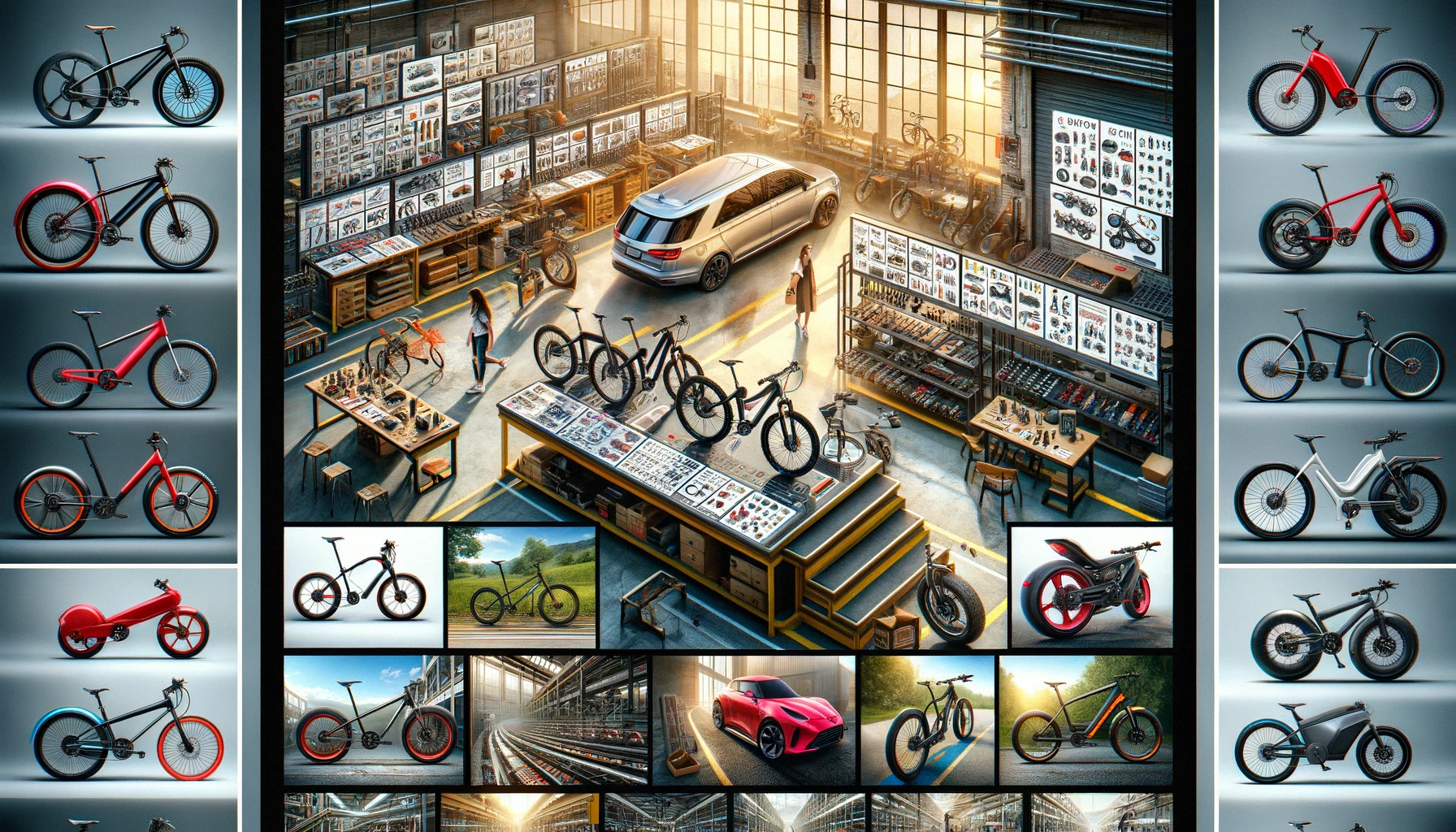
Exploring Various eBike Models and Styles
Chinese manufacturers offer a diverse array of eBike models and styles, catering to different preferences and needs. For example, Engwe is known for its quality and budget-friendly foldable e-bikes, which are suitable for commuting, off-road cycling, and hill climbing. They have expanded their range to include non-foldable models like the Engwe L20, with a low step-through frame, aimed at markets in the United States, Europe, and the United Kingdom.
Magicycle specializes in various e-bike types, including foldable, commuter, mountain, and SUV e-bikes. Their SUV e-bike, Magicycle Deer, is notable for its full suspension, combining features of cargo, mountain, and road e-bikes, making it versatile for different terrains.
Velowave produces a range of models suitable for different purposes, like the Velowave Ghost for off-road trails and city rides, Velowave Prado S for carrying loads, and Velowave Spirit Rad3 for smooth road cycling.
NIU is a prominent electric vehicle company that, besides electric scooters and motorcycles, also manufactures e-bikes for commuting and leisure riding, such as the BQi-C3 Pro with dual batteries.
Customization Opportunities in eBike Manufacturing
Customization is a strong suit of Chinese eBike manufacturers. They offer extensive options to tailor eBikes according to specific market needs. For instance, OmaticTech is known for building and customizing e-bike designs, offering a range that includes foldable, mountain, city, all-terrain, and cargo eBikes, with options for front drive, mid drive, or rear drive.
Matching Products with Market Preferences
Chinese eBike manufacturers are adept at aligning their products with market preferences. Brands like Shengmilo and Cyrusher have gained popularity in the e-bike market with their high-quality, technologically advanced eBikes in various categories like retro, mountain, city/road, folding, and beach eBikes.
Urtopia, based in Hong Kong, focuses on carbon e-bikes ideal for commuting on smooth city streets. Their models, like the Carbon One and Chord, feature advanced technologies like GPS tracking, fingerprint start, and voice control.
C3STROM manufactures class 3 e-bikes with a motorcycle-style design, known for their high performance and unique features like electric horns and USB ports for device charging.
In summary, Chinese eBike manufacturers offer a wide range of models and customization options, catering to various market needs. From foldable and mountain eBikes to innovative designs with advanced technologies, these manufacturers are adept at matching their products with specific consumer preferences and market demands.
Cost-Effective Strategies for Importing Quality eBikes from China
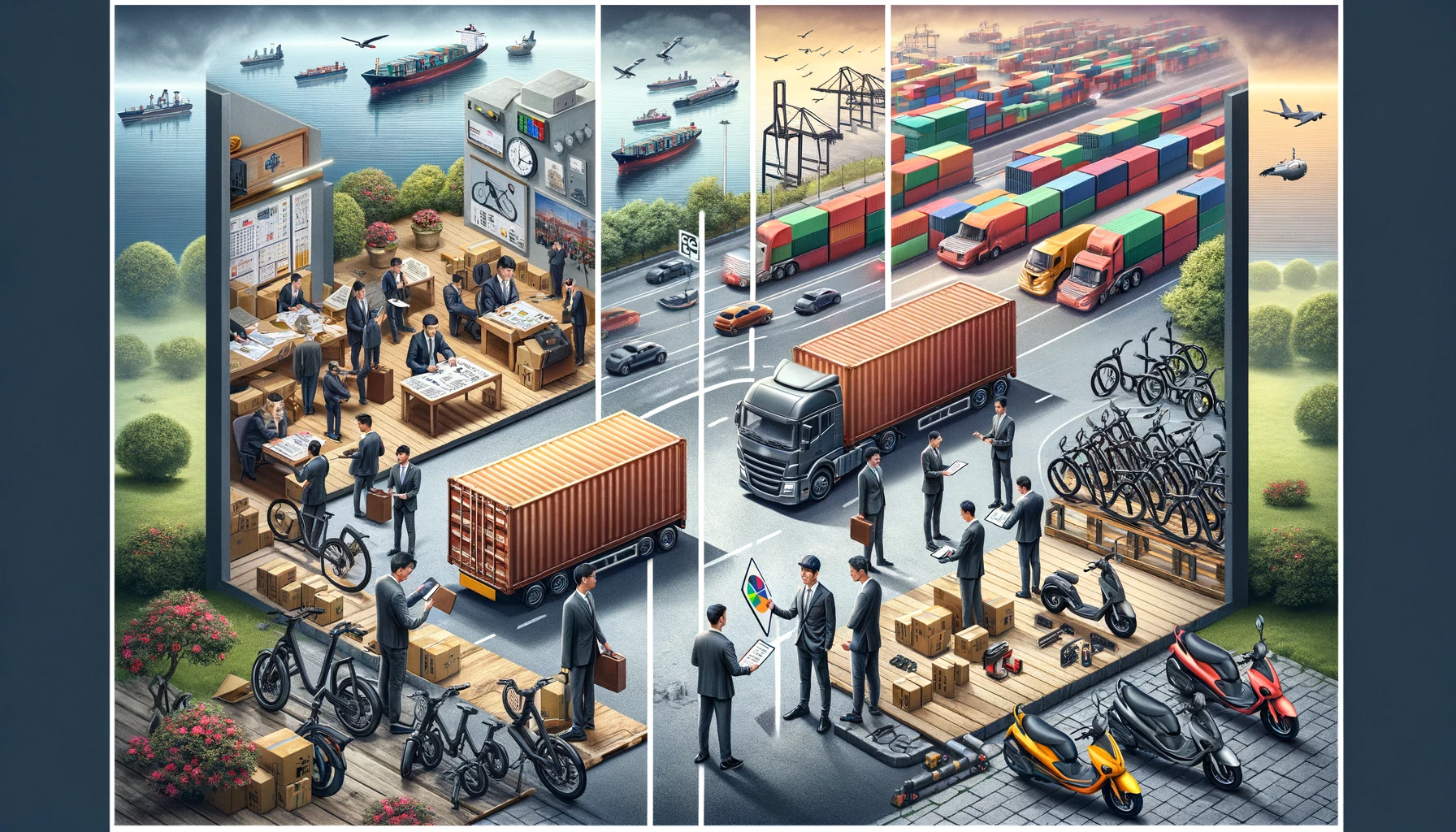
Analyzing Cost vs. Quality Trade-offs
When importing eBikes from China, it’s essential to strike a balance between cost and quality. Chinese eBikes are known for being more cost-effective compared to their counterparts in Western markets. However, this doesn’t always mean they are inferior in quality. In fact, many Chinese eBike manufacturers have improved their production processes, resulting in reliable and efficient eBikes. It’s important to recognize that while some Chinese eBikes may not match the high-end features of top-tier Western brands, they often excel in basic functionality and reliability, making them a great value proposition.
Negotiating with Suppliers for Best Prices
Negotiating with suppliers is key to obtaining the best prices. When approaching Chinese eBike manufacturers, it’s crucial to discuss and finalize business terms, including payment methods, pricing, and delivery timelines. This process requires clear communication to avoid misunderstandings. It’s also advisable to start with a smaller order to assess the supplier’s reliability and the quality of the products before committing to larger orders. Remember, negotiation is not just about lowering the price but also about optimizing other aspects such as specs, delivery time, and warranty terms to match your business needs and financial capabilities.
Budgeting and Financial Planning for Imports
Effective budgeting and financial planning are vital for the successful import of eBikes. This involves understanding the total cost of ownership, which includes the purchase price, shipping costs, customs duties, and any other additional expenses. For instance, import duties vary based on the destination country and product type, with specific rates applicable in different markets like the United States and the European Union. It’s crucial to work with a customs broker or a trade professional to comprehend these costs fully. Additionally, planning for contingencies and unforeseen expenses is a wise strategy to ensure smooth importation.
Navigating eBike Shipping and Import Processes with HAI International Holding
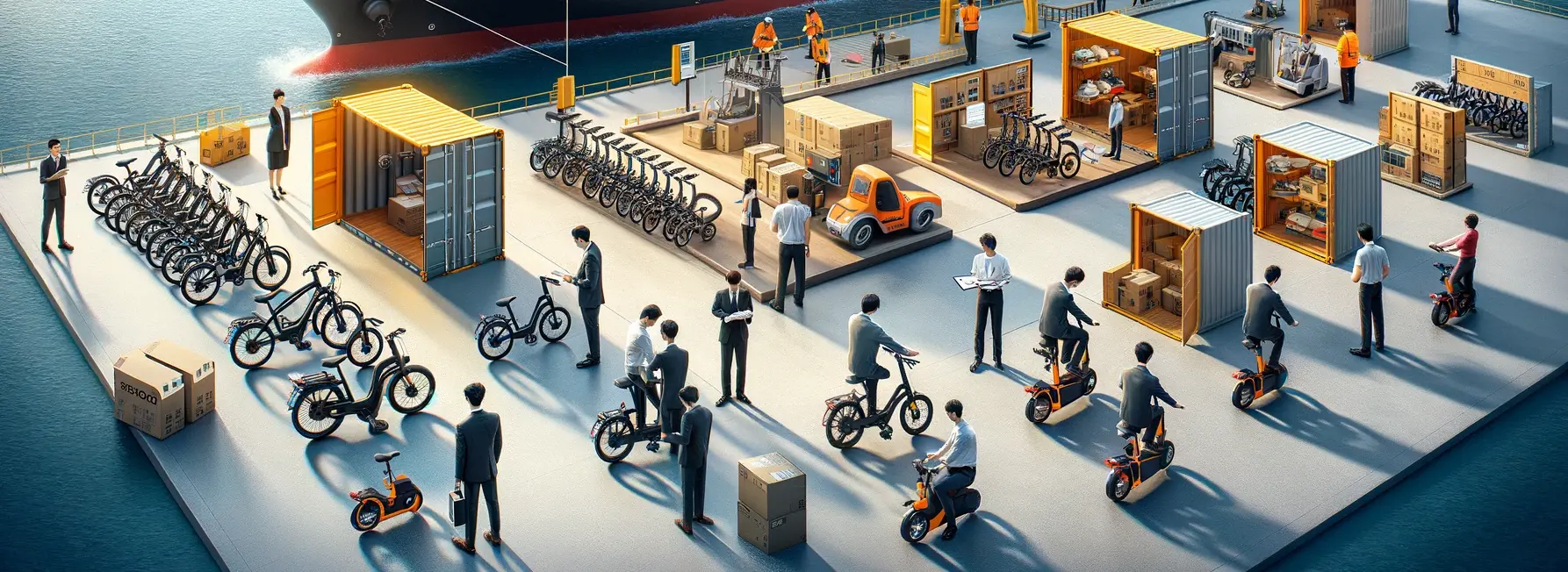
Understanding the Role of Freight Forwarders
When importing eBikes from China, understanding the role of freight forwarders like HAI International Holding is crucial. They are not just logistics providers but pivotal partners in managing the intricacies of international shipping. A reliable freight forwarder is instrumental in ensuring the timely and safe delivery of your goods. They handle the logistics of transportation, including the choice between air and sea freight, and assist in navigating complex regulatory environments.
Managing Logistics and Shipping Timelines
Effective logistics and shipping management are essential for a smooth importation process. Freight forwarders are knowledgeable about preparing the necessary paperwork and accessing shipping networks, which expedites the process and makes receiving shipments more convenient. They also offer a range of services, including warehousing, logistics planning, inventory management, and customs brokerage. Understanding and managing shipping timelines with your freight forwarder is vital to align with your inventory and delivery schedules.
Dealing with Customs and Import Regulations
Navigating China’s customs regulations is a critical aspect of importing eBikes. Freight forwarders bring invaluable expertise in dealing with these regulations, ensuring that all documentation is accurate and compliant to reduce the risk of delays or penalties. Their in-depth knowledge of tariff classifications, duty rates, and trade agreements can streamline the customs process. It’s important to ensure compliance with all regulations, avoiding unexpected costs and delays, which is where a freight forwarder’s expertise becomes indispensable.
Factory Visits and Assessing Production Capacity in China

Planning and Conducting Factory Visits
Planning and conducting factory visits in China, especially for eBike manufacturing, is a critical step in ensuring quality and reliability. It is essential to recognize standard eBike production risks, such as regulatory and quality issues, before diving into production. Factory visits allow you to assess firsthand the manufacturing processes, quality control measures, and overall capabilities of the factory. During the visit, pay attention to details such as the provision of batteries, eBike performance, insulation quality, and any visible defects in welding or paintwork. It’s also important to ensure that harmful substances used in the production meet the regulations of your destination market to avoid detention at customs.
Evaluating Manufacturing Capabilities and Standards
Evaluating a factory’s manufacturing capabilities and standards is a key part of the factory visit. You should assess if the factory has taken appropriate measures to control the manufacturing process and whether the end product meets quality expectations. This includes reviewing every step, from the receipt of incoming raw materials to production processes, assembly, testing, inspections, and warehousing. It’s beneficial to ensure that the factory follows a quality management system, such as IATF 16949, which is a standard for continual improvement in the automobile industry now being applied in the e-bike industry as well.
Building Relationships with Manufacturers
Building a good relationship with manufacturers is crucial for a successful business partnership. This involves clear communication about your specific requirements, expectations, and standards. A solid relationship can lead to better negotiation on prices, customization options, and adherence to delivery schedules. It also opens doors for future collaborations and ensures that the manufacturer is committed to meeting your quality standards. Building trust and mutual respect can lead to a more reliable and sustainable supply chain.
Trade Shows and Expos for eBike Importers in China

Benefits of Attending Industry Trade Shows
Attending industry trade shows offers a wealth of benefits for eBike importers. These events are not just a platform for showcasing products but also a hub for knowledge exchange and understanding the latest trends in the industry. For instance, events like the Eurobike Cycling Week and the Electric Bike Expo in the U.S. provide unique opportunities to witness groundbreaking products and engage in informative sessions about the eBike industry. They offer the perfect blend of education and entertainment, which is essential for staying ahead in this dynamic market.
Networking and Building Contacts at Expos
One of the most significant benefits of attending trade shows is the opportunity for face-to-face communication with industry professionals and potential customers. This personal interaction is far more effective than virtual communication methods like email or phone calls. It’s an excellent way to build and strengthen business relationships, garner unfiltered feedback, and directly engage with your target audience. Events like the China Cycle and Taipei Cycle Show bring together a mix of international and local market leaders, providing unparalleled networking opportunities.
Staying Updated with Latest eBike Innovations
Trade shows and expos are ideal for keeping abreast of the latest innovations and trends in the eBike industry. They host a wide array of companies showcasing their latest products and services, which is invaluable for conducting market research and understanding current consumer preferences. These events allow you to see first-hand what competitors are offering and identify popular trends. For example, the EVTech Expo Europe and Velo-city are known for highlighting sustainability, urban mobility solutions, and innovative designs, helping you stay informed about the evolving landscape of the eBike industry.
Cross-Cultural Communication in Chinese eBike Sourcing

Effective Communication Strategies
In cross-cultural communication, especially in a business context like sourcing eBikes from China, it’s important to focus on the individual as well as the culture. While understanding cultural norms is crucial, emphasizing too much on cultural stereotypes can backfire. Invest time in researching your counterpart’s culture, but also get to know them as an individual, including their professional background and personal traits. Build in time for small talk before diving into business to foster a personal connection, and always be mindful of the subtleties of cross-cultural interactions.
Understanding and Navigating Cultural Differences
Chinese business culture is heavily influenced by Confucianism, which values group harmony. In communication, this translates to a preference for indirect comments and reliance on the larger context to convey messages. The Chinese tend to avoid strong displays of emotion and focus on showing respect towards everyone, often using “we” rather than “I.” In this context, understanding the concept of “face” is crucial. It’s a subtle concept where loss of face can occur in various degrees and can cause serious damage to business relationships. As a Westerner, being aware of these nuances and adapting your communication style accordingly is key to successful interactions.
Building Trust and Strong Business Relationships
In Chinese culture, building trust and strong business relationships revolves around the concept of guanxi, or connectedness. Guanxi is strongest among family members and friends, and the Chinese prefer doing business with those they know and trust. For Westerners, investing in relationships as a long-term endeavor rather than a means to an end is essential. This includes being attentive to nonverbal signals, avoiding direct confrontation, and allowing speakers a way out of uncomfortable situations. Using less directive language, structuring exchanges in a group context, and handling criticism carefully to avoid loss of face are effective strategies to build and maintain strong business relationships.
After-Sales Service in Chinese eBike Imports
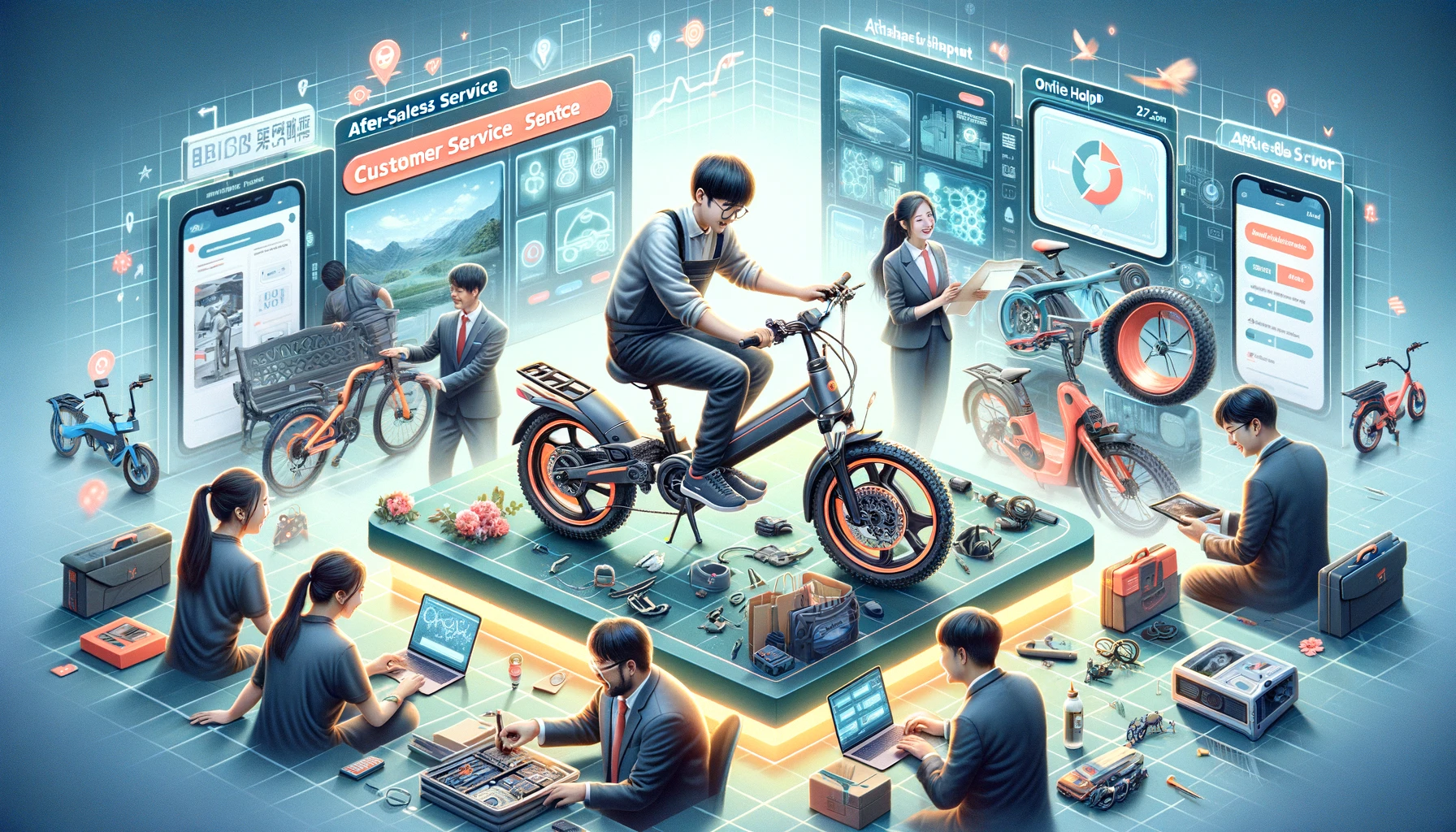
Importance of Customer Service in B2B Relationships
In the realm of B2B sales, particularly in the context of eBike imports from China, the significance of after-sales service cannot be overstated. Not only does it ensure repeat customers, but it also fosters word-of-mouth referrals and maintains a positive brand image. Studies have shown that a staggering 96% of customers are willing to leave a business if they receive bad service. Therefore, continuing to provide exceptional customer service after a sale is like patching a hole in a bucket – it retains customers and ensures the steady growth of your business.
Setting Up Effective After-Sales Support Systems
Effective after-sales support systems are key to customer satisfaction. Providing product training materials, such as online tutorials, videos, and instruction manuals, can greatly enhance the customer experience. Additionally, offering support services through multiple channels caters to the diverse preferences of your customer base. For example, older customers might prefer traditional phone support, while younger demographics might gravitate towards digital communication like chat services.
Moreover, integrating proactive customer service practices is vital. Quick response times and accessible customer service channels go a long way in enhancing customer satisfaction. Providing solid guarantees and a seamless returns policy also plays a crucial role, as research indicates that 88% of customers consider free return shipping important in their buying decisions.
Long-term Customer Satisfaction and Retention
For long-term customer satisfaction and retention, it’s essential to build a culture of feedback within your organization. Actively seeking customer feedback, providing warm responses, and publicizing positive reviews can significantly enhance your brand image. It’s important to remember that excellent after-sales service is not just about responding to current needs but also about continuously striving to improve and meet evolving customer expectations.
Navigating the eBike Import Journey: Key Takeaways and Common Queries
Summing Up the Import Path
The journey of importing eBikes from China is multifaceted, involving various stages from supplier selection to shipping and customs clearance. Let’s recap the essential steps and considerations for a successful import process:
- Understanding the Market: Begin with a comprehensive analysis of the eBike market in China, including current trends and growth projections. This knowledge is crucial in identifying what types of eBikes are in demand and which suppliers are the best fit for your business needs.
- Quality and Compliance: Quality assurance is non-negotiable. Opt for suppliers who adhere to international safety standards, such as EN 15194 for the European market. Compliance with these standards ensures the safety and reliability of the eBikes you import.
- Supplier Selection and Evaluation: Choose suppliers with a proven track record, focusing on their market presence, product range, and technological capabilities. Evaluating the supplier’s credentials and reputation is vital in establishing a long-term, reliable sourcing strategy.
- Negotiation and Order Placement: Once you have selected a supplier, negotiate terms that are mutually beneficial. Start with a small order to assess the supplier’s reliability and the quality of the products.
- Shipping and Logistics: Partnering with a competent freight forwarder like HAI International Holding can significantly ease the logistics of transportation. They assist in determining the best shipping method (air or sea) and manage the complexities of customs clearance.
- Customs and Regulatory Compliance: Working with a customs broker is essential to navigate the intricate customs regulations and ensure that all duties are paid and documentation is correctly filed.
- After-sales Support: Assess the supplier’s customer service and support system. Effective after-sales support is crucial for maintaining a good business relationship and handling any post-purchase issues.
Frequently Asked Questions
What are the main factors to consider when selecting an eBike supplier from China?
Discuss the importance of quality, reliability, and the supplier's ability to meet compliance standards.
How do I ensure the eBikes I import comply with my country's safety regulations?
Explain the need for understanding specific national standards and ensuring suppliers meet these requirements.
Can I customize eBikes when ordering from Chinese manufacturers?
Talk about the customization options many Chinese manufacturers offer and how to communicate these needs.
What role does HAI International Holding play in the import process?
Describe the services a freight forwarder like HAI International Holding provides, including logistics and customs clearance.
Are there any cultural considerations to keep in mind when doing business with Chinese suppliers?
Highlight the importance of understanding Chinese business culture for effective communication and relationship building.

